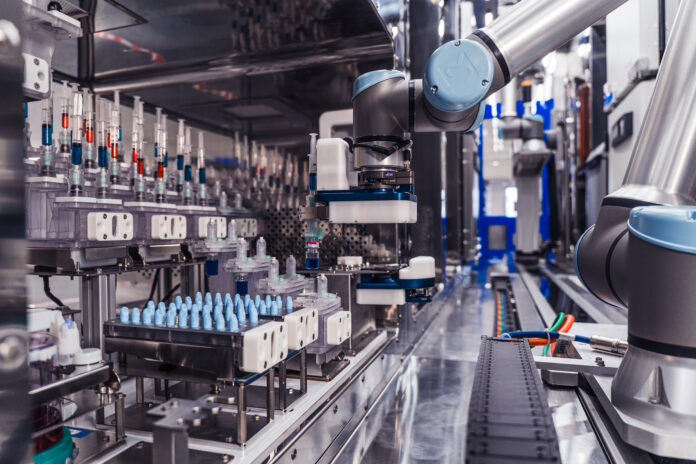SAN FRANCISCO — Multiply Labs has unveiled a robotic biomanufacturing system that cuts the cost of producing life-saving cell therapies by 74 percent, a development that could dramatically expand access to personalized cancer treatments worldwide.
The company partnered with Universal Robots to create a modular cluster of robotic arms that automate the labor-intensive process of manufacturing cell therapies, which are often used to treat blood cancers such as lymphoma and leukemia. Unlike mass-produced drugs, these therapies are created from each patient’s own cells, making them costly and highly vulnerable to contamination during manual handling.
“Historically, cell and gene therapy manufacturing has been manual, almost artisanal,” said Fred Parietti, CEO of Multiply Labs. “Expert scientists perform hundreds of tasks by hand, from pipetting to shaking cells. Our robotic system faithfully replicates those processes but with greater efficiency, sterility, and scalability.”
Peer-reviewed studies with UCSF confirmed that the robotic approach delivered a 74 percent cost reduction compared to traditional manual production. “Growing T cells is something we’ve been doing for a long time,” said Dr. Jonathan Esensten, Director of the Advanced Biotherapy Center at Sheba Medical Center and a collaborator on the project. “But to have the robotic system do it without any human hands touching the cells throughout the process — that is a quantum leap in being able to manufacture these medicines at a lower cost, and in a smaller space.”
The system also improves space utilization, producing up to 100 times more patient doses per square foot of cleanroom compared to manual methods. “Robots don’t breathe, and they don’t touch stuff they’re not supposed to touch,” Parietti noted, emphasizing the sterility advantage.
Multiply Labs’ technology uses “imitation learning,” in which robots are trained by analyzing video of expert scientists performing manual processes. “We then feed this data to the robots, and the robots learn to effectively replicate what scientists were doing in the lab — just more efficiently, more repeatably, 24/7, and in parallel,” Parietti said. This approach not only boosts productivity but also preserves regulatory compliance, since the robots replicate existing approved processes rather than creating new ones.
Universal Robots’ collaborative arms were selected for their precision, six-axis flexibility, and compatibility with cleanroom environments. “By empowering Multiply Labs to replicate intricate manual processes with high precision and scale, our cobots are redefining efficiency in pharmaceutical manufacturing,” said Jean-Pierre Hathout, President of Universal Robots. “More importantly, it’s driving significant cost reductions while broadening access to life-saving treatments.”
Multiply Labs’ robotic clusters are already in use at major pharmaceutical companies, with results also documented in collaboration with Stanford University. “This will really change the way we think about manufacturing bespoke, custom cell and gene therapies for patients,” Parietti said. “We will ultimately improve patient access globally by lowering costs and enabling distributed production of these therapies worldwide.”


